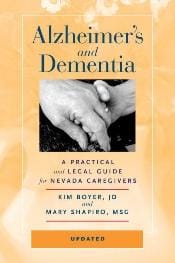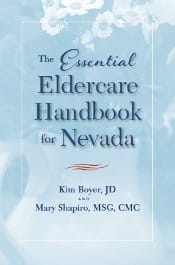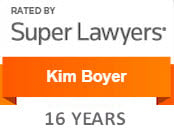Nevada Supreme Court Rules On Medicaid Estate Recovery
By Kim Boyer
What is Estate Recovery? In 1993, the federal government passed a little debated law that required state Medicaid programs to recover from the estates of deceased Medicaid beneficiaries. This recoupment is referred to as “Medicaid Estate Recovery.” Usually the greatest asset owned by people facing a long-term care stay is their home. It is their greatest asset not only in terms of monetary value, but in terms of sentimentality.
The home is an exempt asset for purposes of qualifying for Medicaid. However, this does not mean that it is exempt from estate recovery. In fact, the home is the asset most frequently sought in Medicaid Estate Recovery.
The Nevada Supreme Court’s Ruling. On April 1, 2004, the Nevada Supreme Court ruled on Medicaid Estate Recovery in the case of State of Nevada Department of Human Resources v. Estate of Ullmer. The lower court prohibited the State from placing Medicaid liens against homes of surviving spouses of Medicaid recipients.
The Nevada Supreme Court ruled that the State may impose a lien, subject to certain limitations, before the surviving spouse’s death upon property in which it has a legitimate interest.
The Court said that the state “will release the lien upon the surviving spouse’s demand for any bona fide transaction, including, but not limited to, selling the property, refinancing the property, and obtaining a reverse mortgage.” However, “the state’s interest is not extinguished when the deceased recipient’s interest in the property is transferred for less than fair market value.”
This means that if the surviving spouse wants to sell the house, refinance or obtain a reverse mortgage, the lien must be lifted. If the house is gifted to someone, the lien will remain. The Court also said that the lien must be limited to the deceased Medicaid recipient’s interest in the home. For example, if the husband and wife own the property as joint tenants, then the state can only lien a one-half interest in the property.
Disclaimer: Information provided as a service of Kim Boyer, Certified Elder Law Attorney, updated as of 01/01/05. It does not constitute legal advice. For specific questions you should consult a qualified attorney.





